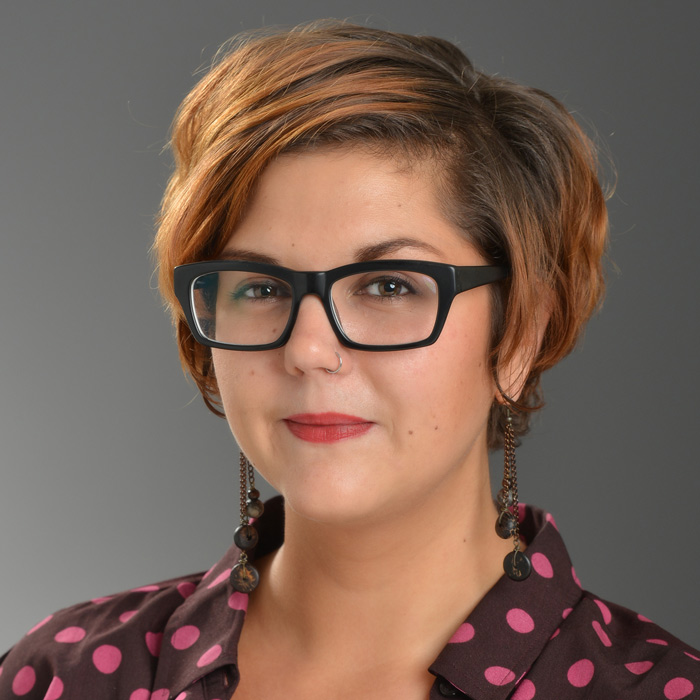About Our People: Michaela Frischherz
Associate Professor Michaela Frischherz specializes in rhetorical theory and criticism with an emphasis on feminist and queer theory, sexual communication, and communication and gender.

How women and other historically disenfranchised genders communicate pleasure and sex in public is her area of focus. For example, a recent
scholarly article is “Cosmo complaints: Reparative reading and the possibility of
pleasure” in Cosmopolitan magazine. She’s also incredibly down-to-earth and a great ambassador to make scholarly
topics accessible to 20-year-olds.
So how did she arrive at her specialization? As an undergraduate, Frischherz was thinking of political affairs professionally. But a queer studies course she
took dovetailed with her coming out to herself as a queer woman.
A European citizen by birth, she pursued her master’s degree in Amsterdam and appreciated
being in a culture that is permissive and more diverse than the United States. And
Amsterdam, with its red-light district, uniquely has a decriminalized sex industry
that is very central to it, even geographically. This would cause her to reflect with
questions about sex and communication, especially in the public sphere. She would
come back to the University of Iowa to pursue her Ph.D., writing her dissertation
about how women express pleasure in various publics.
Aspects of Frischherz’s research involve case studies. She especially finds it extremely important “not to
exploit my research participants.” She’s been collaborating with fellow TU faculty
member Desireé Rowe on focus groups in Baltimore and Dover, Delaware to research the
intersection between a woman’s orgasmic imperative and radical negativity and failure.
“We were sick and tired of women being treated like zombies who passively take on
messages of media,” Frischherz said.
While she appreciated teaching at the University of Iowa, she was very excited to
be teaching in a Towson University classroom that had more diversity because University
of Iowa classrooms are “predominantly white.” She found it very exciting to be able
to teach “Black Girl Dangerous” at TU after the Uprising and have it be organically
meaningful. “It was great to be in this compelling environment,” she said.
She typically has students write a reflection paper for class wherein they must reflect
on their orientation: sexuality, identity, race. She asks: “Are we ever engaging in
the process of learning if we are not challenging what we already know?”
Originally published in “What’s Your Story?” by Marc May.